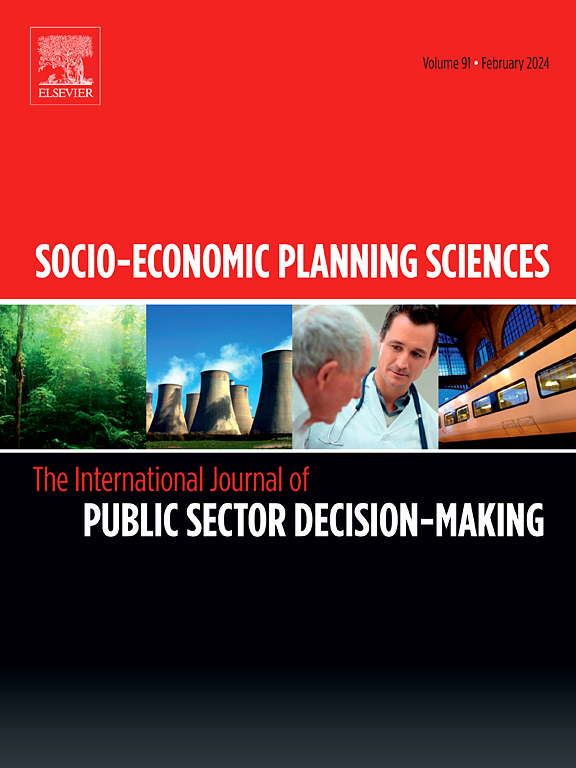An integrative approach to reviewing the literature on judicial efficiency in Europe
IF 6.2
2区 经济学
Q1 ECONOMICS
引用次数: 0
Abstract
The law exists to regulate the behaviour of the members of its community. Economics exists to study the behaviour of individual or group economic agents in allocating resources for production, distribution, and consumption. Together, law and economics concern the application of economics to the practice of law, seeing the law as an economic efficiency-promoting tool for social purposes. Indeed, economic development and litigation have evolved hand in hand, which led to a growing difference between supply and demand with a direct impact on judicial efficiency. However, evaluating the functioning of judicial machinery has been addressed superficially in the literature. Furthermore, grasping the big picture of judicial efficiency in a structured way has never been attempted. Therefore, this integrative literature review investigates judicial efficiency within the European context by synthesising law and economics research. From over 6,500 articles, 50 were critically analysed, offering new perspectives for future research and policy implications on enhancing European judicial systems. This analysis concerned bibliographic data (e.g., 80% of the studies have been published over the last decade), application context (e.g., Italian courts are the most studied entities), model structure (e.g., Data Envelopment Analysis-based methods are the most used ones to measure judicial efficiency), and key findings (e.g., courts across Europe are very heterogeneous). In the end, we provide several renewed perspectives on judicial efficiency that can pave the way for the future of this topic.
欧洲司法效率文献综述的综合方法
法律的存在是为了规范社会成员的行为。经济学的存在是为了研究个人或群体经济主体在为生产、分配和消费分配资源时的行为。法律和经济学共同关注经济学在法律实践中的应用,将法律视为促进社会目的的经济效率工具。事实上,经济发展和诉讼是齐头并进的,这导致供需差距越来越大,直接影响到司法效率。然而,评价司法机构的运作在文献中只是肤浅的讨论。此外,从未尝试过以结构化的方式把握司法效率的大局。因此,本综合文献综述通过综合法律和经济学研究来调查欧洲背景下的司法效率。从6500多篇文章中,有50篇进行了批判性分析,为未来的研究和加强欧洲司法系统的政策影响提供了新的视角。这一分析涉及文献数据(例如,80%的研究是在过去十年中发表的)、应用背景(例如,意大利法院是研究最多的实体)、模型结构(例如,基于数据包络分析的方法是最常用的衡量司法效率的方法)和关键发现(例如,欧洲各地的法院非常异质)。最后,我们提供了几个关于司法效率的新观点,可以为这一主题的未来铺平道路。
本文章由计算机程序翻译,如有差异,请以英文原文为准。
求助全文
约1分钟内获得全文
求助全文
来源期刊

Socio-economic Planning Sciences
OPERATIONS RESEARCH & MANAGEMENT SCIENCE-
CiteScore
9.40
自引率
13.10%
发文量
294
审稿时长
58 days
期刊介绍:
Studies directed toward the more effective utilization of existing resources, e.g. mathematical programming models of health care delivery systems with relevance to more effective program design; systems analysis of fire outbreaks and its relevance to the location of fire stations; statistical analysis of the efficiency of a developing country economy or industry.
Studies relating to the interaction of various segments of society and technology, e.g. the effects of government health policies on the utilization and design of hospital facilities; the relationship between housing density and the demands on public transportation or other service facilities: patterns and implications of urban development and air or water pollution.
Studies devoted to the anticipations of and response to future needs for social, health and other human services, e.g. the relationship between industrial growth and the development of educational resources in affected areas; investigation of future demands for material and child health resources in a developing country; design of effective recycling in an urban setting.
 求助内容:
求助内容: 应助结果提醒方式:
应助结果提醒方式:


